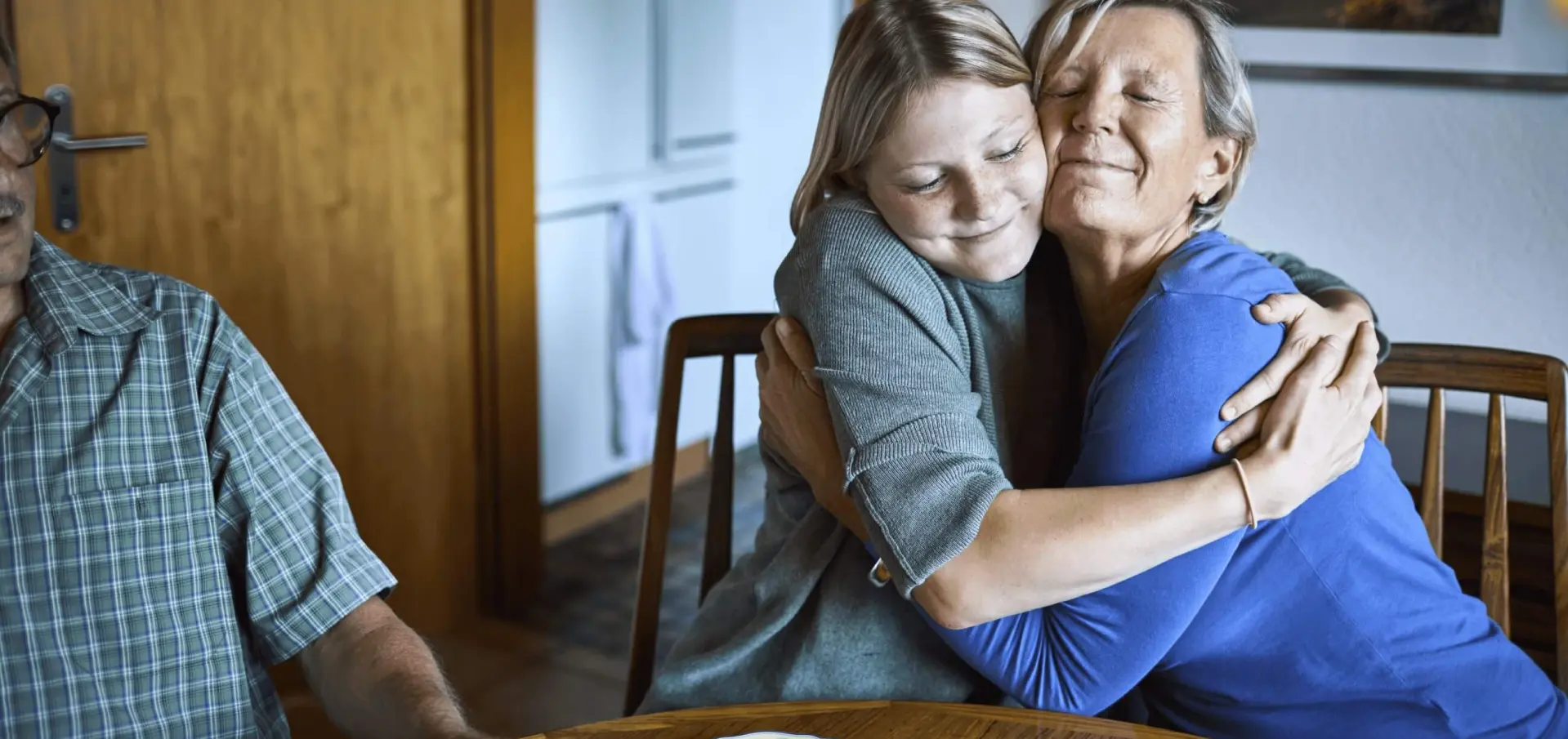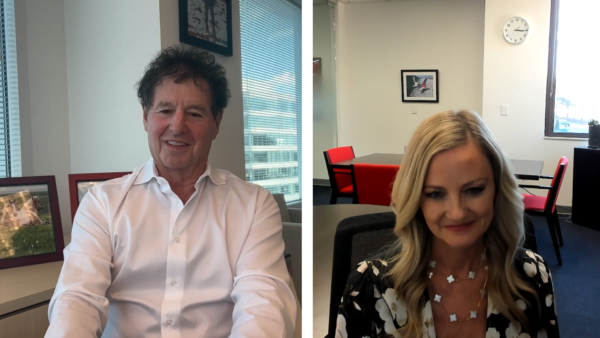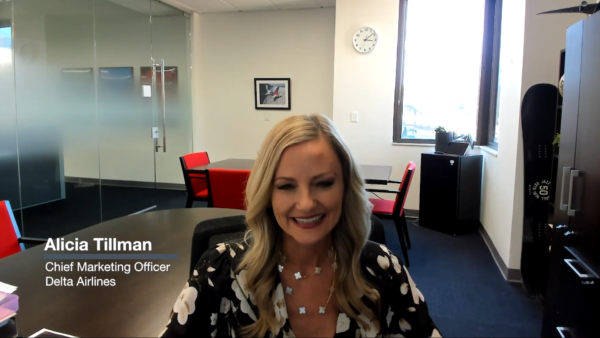In this latest episode of Making Waves, Hal welcomes Dr. Judith Beck, world-renowned psychologist and leader of the Beck Institute for Cognitive Behavior Therapy. Join them as they expound on the significance of CBT in addressing hypochondria, the critical role of individualized therapy, and the evolving landscape of mental health treatment. Listen, watch and read as Dr. Beck shares insights into how CBT works, the importance of training professionals to meet the increasing demand for effective therapy today and discover why Dr. Beck agreed to write the foreword to Hypochondria: What’s Behind the Hidden Costs of Healthcare in America, which follows Hal Rosenbluth’s journey through the broken American healthcare system. Co-authored by Marnie Hall, the book offers traditional and unconventional solutions to manage illness anxiety and an eye-opening dissection of Big Pharma and how America can improve its delivery of care.
Read the full interview:
Hal:
Welcome to Making Waves. Today I have the pleasure of visiting with Dr. Judith Beck president and head of the Beck Institute. The Beck Institute is the birthplace of cognitive behavioral therapy or CBT, as many of us refer to it. Welcome.
Judy:
Thank you.
Hal:
You were so kind to write the foreword for our book, Hypochondria and the Hidden Cost of Healthcare in America. We sent you the book because you’re really the authority on CBT, and that’s a critical part of helping people with hypochondria. Why did you decide to [inaudible 00:01:04] the forward we were honored?
Judy:
Well, when I received the manuscript, I thought, “Oh gosh, I have so many manuscripts to read.” Because I often get asked to write endorsements as I was asked for this. But I sat down one Saturday morning and started to read it, and I just immediately became so interested. It was so entertainingly written and I learned so much from it. I actually read it all in one sitting, and I thought it was so important for a couple of reasons. One is it really did describe, again, in a very entertaining way, the problem of hypochondriasis of what we now call illness anxiety, and it’s such a prevalent problem. And reading through the book, I kept thinking myself, “Wow, the people who have hypochondriasis have such a different belief from my belief.” My belief is if you have an unexplained symptom, then it’s probably going to be mild and temporary and you don’t have to pay any attention to it.
But people who suffer from this illness have an opposite belief. And of course, I had known that before and have treated people in my office, but it really just kind of hit home what people do to try to cope with this problem. That’s actually the opposite of what they should be doing. The book shines a light on hypochondriasis and what you can do about it. The other thing is it was so interesting, and I had some inkling of this, but really gave me a much fuller picture of why the health system in the United States is so broken. And it just again, talked in an entertaining but really informative way about what the problems are, and it offered some solutions. So all in all, I love the book and I decided I don’t just want to write an endorsement. Maybe they’ll let me write it forward. So thank you for the book and for that opportunity.
Hal:
Tell us everything that’s important about the Beck Institute before we just get into CBT and things like that, because I find it fascinating and critically important these days.
Judy:
So it’s actually the Beck Institute for Cognitive Behavior Therapy, and it’s not named after me. It was named after my dad, Aaron Beck, and he was the one who developed this form of psychotherapy back in the 1960s and 1970s. And when he did, he really created just a revolution in the healthcare industry, not only in the United States, but really throughout the world. And the institute, which is in Philadelphia, is non-profit. Our mission is to improve lives worldwide through excellence in innovation and cognitive behavior therapy. And we have a small clinic where we see clients and we also see clients virtually, but mostly we do national and international training in CBT.
Hal:
That’s great. The more people trained, the better because there’s a phenomenal need for it, and the prevalence of that need is increasing in the world that we live in.
Judy:
It certainly is. I think a lot of people don’t really understand the differences between different kinds of psychotherapy. A lot of people feel stigmatized for having a mental health problem. A lot of people don’t know the difference even between mental health professionals, like a psychiatrist, a psychologist, a social worker, things like that. And the Beck Institute really provides both resources and education for professionals, but also increasingly for paraprofessionals who can deliver a simplified version of CBT, just incredibly needed. As you were saying, in this world, the incidence of mental illness has just risen exponentially, especially since COVID.
Hal:
Yeah. Do you think that people worry more these days about the future and whether they’re younger or they’re older or not, there’s just so much information hitting them and not all of it is good? Have concerns about AI, is it going to be used in a positive way or a nefarious way? Take AI for instance, in your profession? Is that going to play a part at all?
Judy:
I think it’s going to play a huge part. So I’ve recently used a couple of different apps that provide kind of a form of CBT through the app, through artificial intelligence. And so I made up a few sample patients just to test it. And for example, I pretended I was a 35-year-old woman with very little kids. And my husband had just announced he was going to divorce me, and I was just worried about everything and feeling pretty devastated. And I thought, “Well, okay, so let me tell this to this app and see what happens.” And the app spoke back to me, the program spoke back to me, I should say, and actually did a pretty good job of helping me focus just on one problem that was the most important to me and helped me figure out what steps I could take. And talked about the importance of taking a first step and then helped with every objection I brought up to taking that step. It was really remarkable.
Hal:
Did it send you to a dating app?
Judy:
It did not, but it helped me understand that I had different kinds of resources that even if I couldn’t afford a lawyer, I could try legal aid, I could ask friends and family, just practical solutions like that, which is part and parcel of what CBT is.
Hal:
And that is so critical because people just don’t know what to do anymore, what steps to take, where to go, what’s inside. I should have met your dad about 40 years ago and started then and gone right through ordeal, it would have been perfectly fine at this point.
Judy:
Another really important part is that people don’t know what to look for. Let’s say they’re even willing to give therapy a try, they just don’t know what to look for. And I think they should know some things about CBT. For one thing, CBT is the most highly researched psychotherapy. And this research has been done all over the world for the past 60 years or so. It’s also the most widely practiced psychotherapy in the world. And the gist of what we try to do in CBT is about half of what we do is practical problem solving. So we talk about, “What’s going on in your life right now that you need some help with, and what goals do you have and what do you want your life to look like? How do you want to be?” And at every session, we’ll take at least one problem or goal, we’ll talk about it.
And in the context of talking about the goal we’ll teach you some skills. So one really important skill is to recognize when your thinking is either unhelpful or may not be completely correct or both. And people who have mental illness, one characteristic is that they have some amount of thinking that just is not accurate. They’re seeing things through, if they’re depressed for example, through black glasses, they’re just not seeing things so clearly. And so one of the things we often have to do is to teach them how to identify their depressed thinking and then how to evaluate it and how to talk back to themselves. Another important thing that we do, as I said, is problem solving. And a third thing is skills training. And so we discuss the problem, at the end of discussing it we would say to a client, “So what do you want to remember about what we’ve just talked about?”
And if the client comes out with a good summary, we say, “That’s great. Do you want to write it down or do you want me to write it down for you?” And then we might also say, “Do you also want to remember this and this about what we just talked about?” And if we haven’t already talked about it, then we would also say, “And what do you want to do about this week?” And we make sure that that gets written down. And then we find out, “How likely are you to read these therapy notes every day, and how likely are you to take this kind of behavioral step that we’ve just talked about?” And if someone says 90 to a hundred percent sure they’ll do it, we know that highly likely they’ll do it. If they say less than 90%, then we got to find out what’s going to get in the way.
Probably either what negative thoughts might get in the way of their, for example, calling a friend to take a walk or what practical problem could get in the way, or what lacking of skill might they have that could get in the way? So it’s a very practical kind of therapy. We tell people at the first session, “Our goal is to make you your own therapist. So not only are we going to use techniques, I’m going to teach you how to do them yourself.” And we also tell them that the way people get better, it’s not all at once. It’s by making really small changes in how you think and what you do every day. And so really the therapy session will help you figure out what do you want to work on? How are you going to do that? What are the specific steps you’re going to take?
Hal:
You have to get to know each individual because you’re going to take a different approach, I assume.
Judy:
You do. And unfortunately, there are some people even in cognitive behavior therapy who work from therapy manuals. And that’s not what we do at all. The therapy manuals are really important when you do research to sure that the therapy is being delivered in the same way across therapists and across clients. But the treatment manuals for the most part don’t talk about the importance of having a really strong therapeutic relationship with the person. They don’t talk about how to vary treatment if the person’s from another culture or a different socioeconomic status or has different spiritual beliefs from the mainstream. And so it’s so important to individualize it for the person and to really understand the client according to what my father termed as the cognitive model. Should I tell you about that?
Hal:
Yes, please.
Judy:
So it’s not situations that directly affect people’s reactions, what they think, how they feel, what they do. Rather, it’s their interpretation of situations. So for example, let’s say someone is watching this interview, so that’s the situation they’re watching. They’re listening to it, and they might think, “Oh gosh, I don’t understand this. There’s something so wrong with me. I’m just too stupid to understand this.” And if they had that thought, they would probably feel really sad and then might be so engrossed in their thoughts that they stop paying attention. But another person might be watching and thinking, “Oh my gosh, this seems so important. I think I have to find out more about this. What if this is what’s going to help me? How can I find a good person? How will I know if it’s a good therapist? I just feel overwhelmed.”
And so that person might feel anxious and again, might have attention pulled away from the behavior of concentrating on what we’re saying. A third person watching might have an altogether different reaction based on their interpretation. So they might think, “Wow, this is really interesting. I’m so glad to learn about this. I think this is important. This is going to help.” So then they’re going to feel probably glad and they’ll probably pay better attention than the other two. So it’s not situations that directly impact how we feel, it’s how we think about that situation. And many of our thoughts are a hundred percent true, but then we probably also have some thoughts that are 0% true and some that are someplace in the middle.
Hal:
Well, as you know, I’ve grown up with various degrees of hypochondria. So first I want to thank for writing the foreword to our book with hypochondria-
Judy:
Oh, my pleasure.
Hal:
… and how do you deal with people with multiple personalities? A person has two or three personalities, do you ever run into that?
Judy:
So I would say rather than personalities, people go into different modes. So I know for myself, sometimes I’m in the work mode and I have to remember if I’m having dinner with my husband to stop thinking about work and to focus on him and having a good conversation. And when I’m with my grandchildren, I look so totally different. I’m totally in the playful mode and being really silly and things like that. And I’m sure I have other modes too. So people do operate in different ways depending on their perception of the situation and what their goal is for that situation.
So when we’re working with people, we want to find out though, “What’s most important to you to work on today? How can I be of help today?” And if they say, “I’m not sure.” Then because I’ve done a really good evaluation of them, I might suggest, “Well, we could talk about A or B or C. Do you have a sense that one of those might help you more than the others?” And if they say, “Well, I don’t know.” Then I might say, “Would it be okay if we start with A? And let’s just see how far we get with that?”
Hal:
Yeah, there’s been increasing prevalence of depression in sure, the world. But speaking about America itself, there’s such a great need for more folks to get into your profession. And I believe that you actually teach and help people do so. For someone who’s thinking about it, how should they approach getting into this profession?
Judy:
So on a practical basis, they need to get into a graduate program, either in counseling, psychology, social work, psychology, or psychiatry. And for the last, of course, they have to go to medical school first. So they need to do that in order to be able to become licensed in practice. So that’s kind of the practical basis. But what you should also know is that those professions that I just mentioned are protected by the state. So the state says, “Okay, here are the standards that you have to meet. You have to have this much schooling. You have to pass this kind of exam. You have to this much supervision and so forth.” But there are other terms that are not protected. So my four-year-old grandson could call himself a therapist or a psychotherapist or a cognitive behavior therapist. So it’s important to make sure that when you get help, you’re going to someone who really has the appropriate training.
Hal:
Thank you for joining us today. If you’d like to learn more about the Beck Institute and Dr. Judith Beck, please feel free to go to beckinstitute.org or visit newoceanhealthsolutions.com, and you’ll find this recording there as well.




